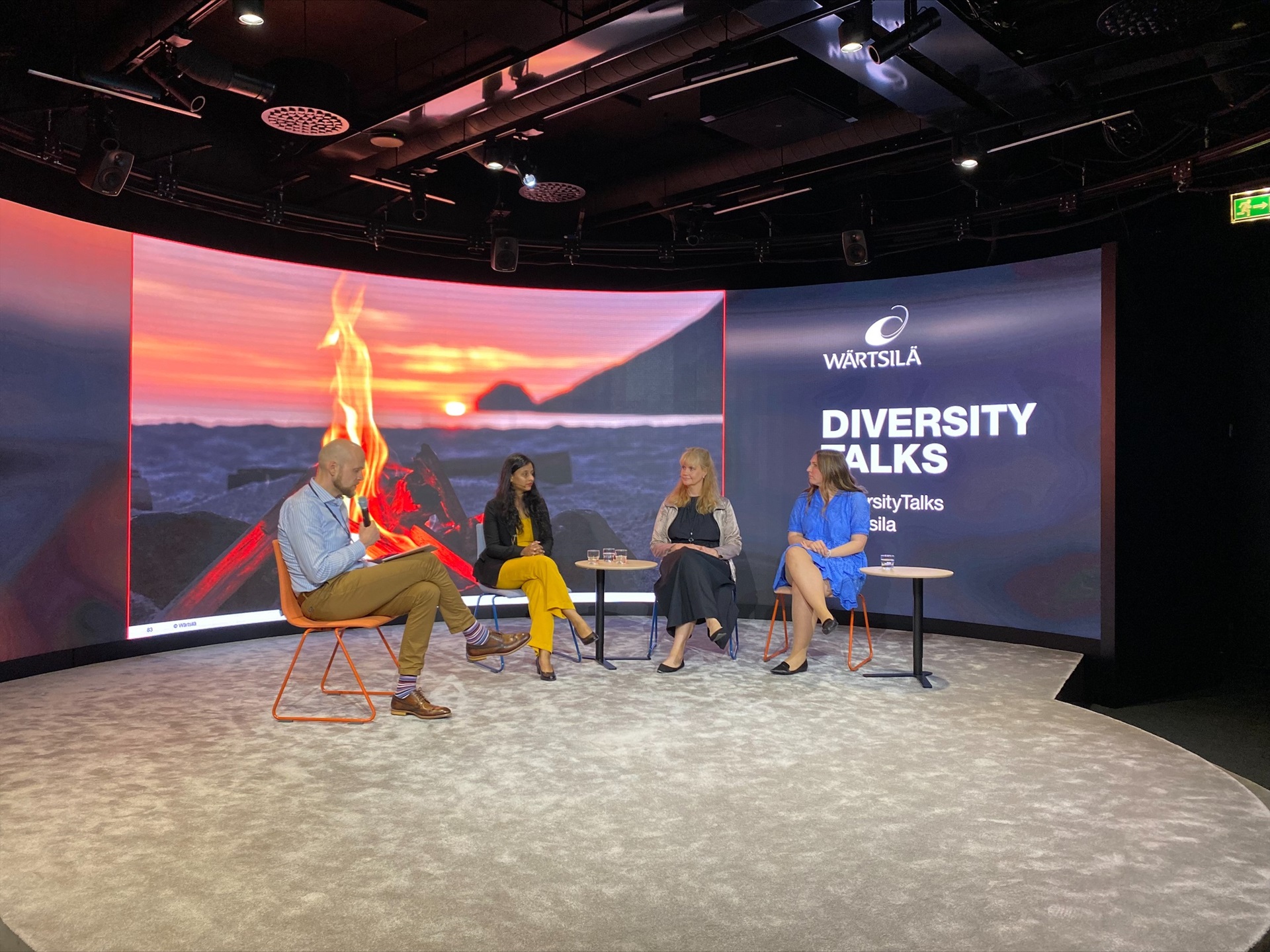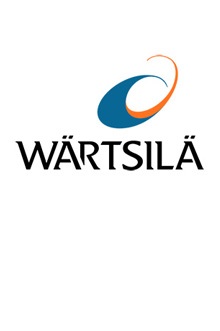

On Wednesday 1 June, we talked diversity, equity and inclusion at Wärtsilä’s Helsinki Campus.
Our second Diversity Talks event brought together Wärtsilians and our external partners to listen, discuss and learn.
Besides the keynote by our EVP of Human Resources, Teija Sarajärvi, we had the pleasure of welcoming two amazing external speakers on the stage: Jenni Kurkikangas, HR Business Partner, Global Logistics Operations from Metso Outotec and Priyanka Banerjee, the CEO of BusinessWiz.
The event also marked the beginning of our internal idea campaign to make a D&I difference! Using the SPARK innovation platform, we will collect the best ideas and practises on how we, together, can create a more inclusive culture at Wärtsilä!
Wärtsilä’s D&I journey so far and next steps
The event was kicked off with Teija Sarajärvi’s presentation on Wärtsilä’s diversity and inclusion journey.
“It is extremely important for us to offer a safe environment for people to be themselves, as that is what frees people to innovate and helps us to reach our purpose. This is why we are here today”, she stated.
Sarajärvi continued by sharing some of the positive development Wärtsilä has achieved in the past years. In 2021, for example, we reached our biggest milestones so far, as we launched our first global Diversity & Inclusion programme, Conversations of Understanding, and achieved fully equal average annual salaries between men and women.
“We should be proud of these achievements, but I think there is much more we can do. We want to get driving in fifth gear, instead of second”, she noted.
To highlight the need for improvement, she lifted a few results from our recent employee survey.
“When asked if Wärtsilians feel they are being treated fairly and equally and whether they are comfortable with raising ideas and opinions, we get overall positive results. However, we need to dig deeper and understand where and what we could do better,” she said.
“We need actions. Otherwise, it becomes bold statements and nice campaigns, which are of course important as such, but everything should translate into what we do. How is it visible in everyday life?”
Metso Outotec’s journey: Linking D&I to performance
Next up was Jenni Kurkikangas from Metso Outotec, sharing how they have linked D&I to performance, giving examples of their positive progress as well as the challenges.
Kurkikangas highlighted the need for safe environments and safe communications channels to make sure people can give honest feedback and share their experiences and thoughts, including the negatives.
In 2021, Metso-Outotec started awareness building through global trainings, inclusion campaigns and employee resource groups. This year, they have launched initiatives such as Global fair pay initiative and Women’s mentoring programme.
Kurkikangas also mentioned Metso-Outotec’s recruitment guidelines and trainings, as well as psychological safety trainings that are available to all within the company.
“Be aware of your own bias and pay attention to details like word choices. For example, consider the use of spouse or partner instead of wife or husband”, she suggested as an example of inclusive everyday choices.
Kurkikangas also reminded that in the hybrid working era it is crucial to make meetings inclusive of all life situations. What is the best time for a meeting? Is everyone equipped and able to access it?
“Let’s encourage constant dialogue with our colleagues, ask and give feedback, and provide opportunities for learning for everyone. And then start again.”
D&I from a data perspective
Next up was Priyanka Banerjee, the CEO and co-founder of BusinessWiz Oy, a company that provides help and consultation services to other companies on their journey towards Diversity and Inclusion.
She started her presentation with a personal note, recounting how she was inspired to start her company because of her own experiences as a woman of colour in the male-dominated Finnish tech industry, before D&I became a topic of conversation within companies.
“How many of us would like to be disrespected and undervalued at work?”, Banerjee asked the audience explaining that Diversity, Equity and Inclusion (DEI) equals social sustainability.
“Inclusion means an effort to create a sense of belonging. An environment that respects and values all people”, she summarised.
In her presentation, Banerjee showed in indisputable data how diversity benefits companies. Diverse teams outperform and are more innovative than homogenous ones.
“Studies show that a sense of belonging makes people happier, and that happiness among workers is linked to higher productivity and better job performance”, she explained.
A growing number of employees also prefer companies that value and care about diversity and inclusion.
“Younger generations of employees, such as Millennials and Gen Zs, will leave a workplace based on their personal ethics, if they are not happy with the company’s efforts. This can prove costly”, she says.
Measure, reflect and get past the bias
Diversity Talks ended with a panel discussion with our speakers. The discussion flowed from manager-level efforts and recruitment processes to conscious self-development.
At the end of the session, we came to the most important question: what can we do next to improve diversity, equity and inclusion in our workplaces?
Banerjee recommended, first and foremost, to take small steps and to measure each one.
“Remember to measure and reflect. What have we generated among the employees? Did our training have an impact? Should we do it differently?”
She also encouraged to pay attention to language in recruitment, to coach managers on what to ask and for all of us to question and challenge our gut feeling: why does someone feel suitable and why does someone not?
“It is easy to recruit people who are like you. But by hiring a bunch of people who are alike, you practically only hire one person. Let’s try and get past the bias.”, she summarised the event’s main message.




